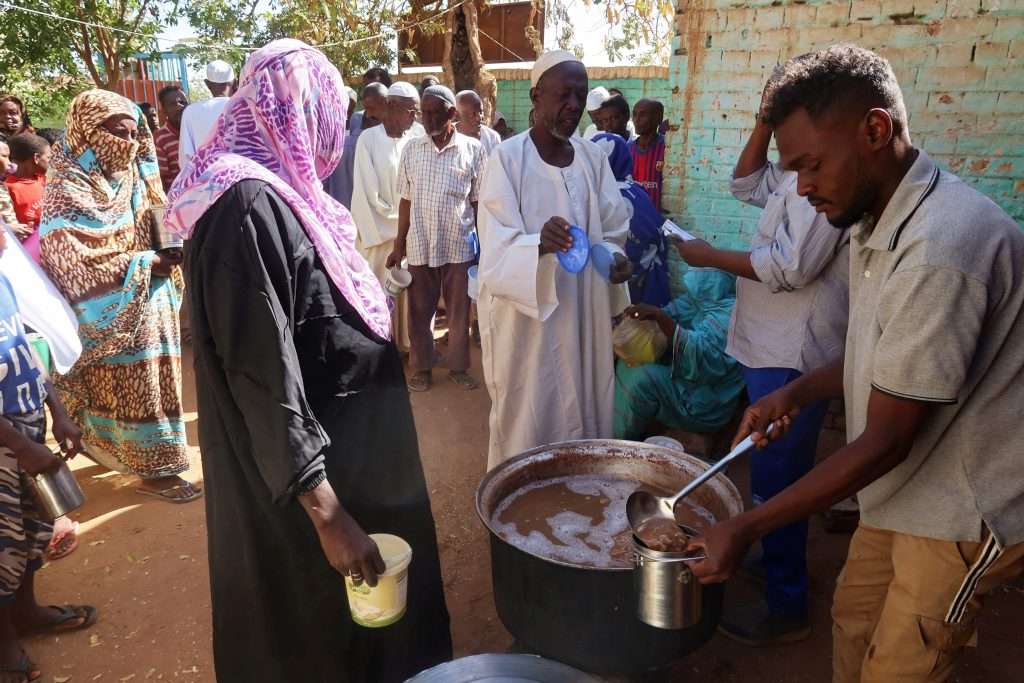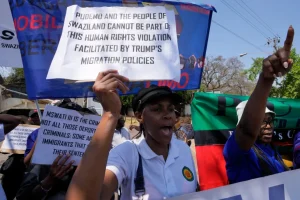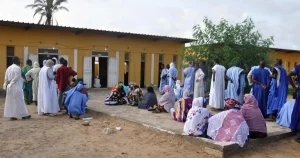World Food Programme warns of famine risk in Sudan

Volunteers distribute food to residents and displaced people in Omdurman, Sudan, March 8, 2024. Nearly five million people in the country are close to famine as Sudan's civil war passes the one-year mark. REUTERS/El Tayeb Siddig/ File Photo
On June 10th, the United Nations World Food Programme (WFP) warned that areas south of Sudan’s war-torn capital, Khartoum, face an imminent risk of famine, according to The New Arab.
The agency highlighted Jabal Awliya—a town roughly 40 kilometres south of the capital—as one of the worst-affected areas, where “severe” levels of hunger have been recorded.
Laurent Bukera, WFP’s country director in Sudan, stressed the urgency of the situation, appealing for immediate international funding to bridge a major gap in food aid. The ongoing conflict has crippled access to food and essential supplies, deepening the humanitarian crisis across the region.
After visiting Khartoum State for the launch of a new World Food Programme (WFP) office in Omdurman, a district within greater Khartoum, Bukera spoke of the overwhelming needs facing Sudan.
“The needs are immense,” he said during a press briefing in Geneva.
Since April 2023, Sudan has been engulfed in conflict between the national army and the paramilitary Rapid Support Forces (RSF), a power struggle that has left tens of thousands dead and forced 13 million people from their homes — with four million seeking refuge abroad. The United Nations has described it as the world’s worst humanitarian crisis.
In a significant shift on the ground, the RSF lost control of Khartoum in March.
The WFP has regained access to previously unreachable areas in Sudan and is now able to carry out regular aid deliveries. The agency says it is doing all it can to prevent famine from taking hold among vulnerable communities.
“The level of hunger, destitution and desperation” witnessed during initial aid distributions in Jabal Awliya last month was “severe, and basically confirmed the risk of famine in those areas,” said Bukera.
Famine has already been declared in five regions across the country, including three displacement camps near El-Fasher in Sudan’s southwest. While the situation in El-Fasher itself is dire, a formal declaration has yet to be made, with humanitarian agencies citing restricted data access as the primary obstacle.
On June 2nd, five aid workers were killed while en route to the besieged city of El-Fasher, in a region under the control of the Rapid Support Forces (RSF). The incident underscores the growing dangers faced by humanitarian staff as Sudan’s crisis deepens.
Nationwide, nearly 25 million people are grappling with severe food insecurity.
The World Food Programme (WFP) has significantly scaled up its operations in response, now reaching four million people each month—almost four times the number it served at the beginning of 2024.
The agency hopes to expand its reach to seven million monthly, with a focus on communities already experiencing famine or teetering on the edge.
The New Arab/ Maghrebi.org
Want to chase the pulse of North Africa?
Subscribe to receive our FREE weekly PDF magazine















